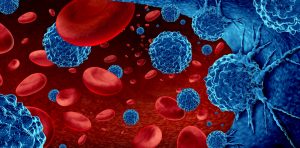Novartis challenges Roche with MabThera biosimilar
pharmafile | January 11, 2011 | News story | Research and Development | Lonza MabThera, Novartis, Roche, Teva, biosimilar, rituximab
Novartis’ generics unit Sandoz has begun mid-stage trials of a biosimilar version of Roche’s blockbuster drug MabThera.
The phase II trial is looking at patients with rheumatoid arthritis aims to ensure biosimilarity with MabThera (rituximab), a monoclonal antibody currently indicated to treat rheumatoid arthritis and non-Hodgkin’s lymphoma.
Novartis said in a statement recent data suggests its biosimilar rituximab is “highly similar to the reference product”, justifying initiation of clinical studies in patients.
Sandoz global head Jeff George said: “This key development milestone demonstrates that Sandoz, the pioneer in biosimilars, is on track to maintain its global leadership position in the medium to long-term.
“With nearly 50% market share within the global regulated biosimilar market, and with three marketed products, Sandoz plans to continue to broaden patient access to essential high-quality biologics by consistently advancing our industry-leading development pipeline.”
MabThera made Roche $5.6 billion in revenue for 2009, making it the Swiss pharma’s biggest selling product after Avastin.
Biosimilars are more difficult to develop and employ a different process to that required for making a normal generic copy of a drug.
Generics also don’t require clinical trial data, as they are sufficiently similar to existing drugs that have already been through this process, making their development a quick and financially rewarding process.
Although Novartis is required to undergo the normal process of clinical trials for its biosimilar version of MabThera, the company has not had to go through the initial early R&D phase and already knows the drug is effective and lucrative in its current indications for Roche.
If it passes successfully through the clinical and regulatory process, it could stand to take a large slice of MabThera’s $5.6 billion revenue.
Roche could face additional competition from generics firm Teva and Lonza, its Swiss biotechnology specialist, as they too are undertaking clinical studies on a biosimilar of rituximab.
Big pharma has in recent years started focussing on biologics as they are more difficult for other firms to copy and are thus less likely to see generic erosion.
In November Novartis said its new business strategy would see the company look to generics and biosimilars to provide some insulation from pharma’s usual sharp-edged patent cycles.
Announcing the MabThera biosimilar trials Sandoz’s global head Ameet Mallik said: “Our pipeline is particularly focused on monoclonal antibodies, the largest and fastest-growing segment of the biologics market.
“We are confident that we can leverage our unrivalled development and manufacturing capabilities as well as our Novartis-wide synergies in areas including clinical trial design and execution, to succeed in this exciting new field.”
The company currently faces the patent expiry on its biggest seller Diovan, which made $1.5 billion in the third quarter of 2010.
Ben Adams
Related Content

Roche’s Alecensa approved by FDA as lung cancer treatment
Roche has announced that the US Food and Drug Administration (FDA) has approved Alecensa (alectinib) …

Novartis shares new data about Fabhalta for IgAN treatment
Novartis has announced new results from a pre-specified interim analysis of its phase 3 APPLAUSE-IgAN …

Genentech’s Columbi meets primary endpoint in phase 3 trial for lymphoma treatment
Genentech, part of the Roche Group, has announced that its phase 3 STARGLO trial has …








